How COVID and Poverty Have Ravaged Rural Georgia
Print This Post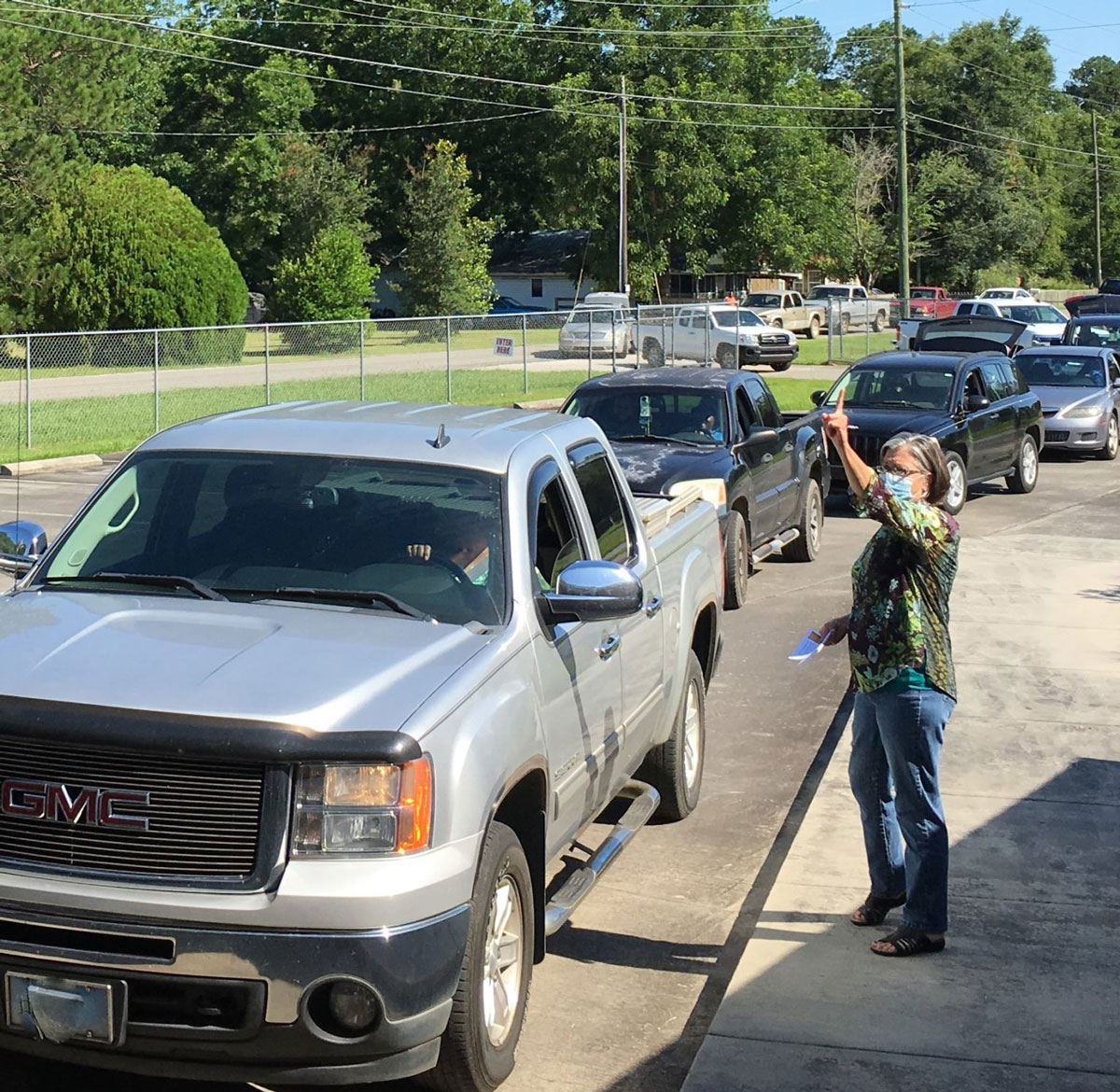
Cook County Family Connection Executive Director Zoe Myers directs traffic at a local food drop location
by Andy Miller
Editor and CEO of Georgia Health News
It’s not just the actual infections that have altered the medical landscape in Cook County.
The COVID-19 pandemic has produced many more people with depression and anxiety, says Dr. Jairaj Goberdhan, a family physician in the South Georgia county.
“I have written more prescriptions for that,’’ he says, adding, “I have written more sleep aid prescriptions [though] I don’t like to do that.’’
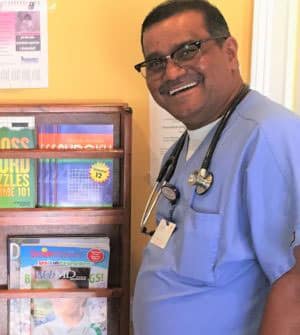
Jairaj Goberdhan, MD, a family physician in Cook County
Photo courtesy of Georgia Health News
COVID also has led to weight gain, says Goberdhan, who has practiced in Adel since 2006. “People are home, they’re gaining weight. We’re seeing uncontrolled diabetes.’’
Cook County may be typical of how rural Georgia is weathering the pandemic. Rural areas have seen higher rates of COVID deaths. “Unfortunately, I have lost a number of patients to COVID,’’ Goberdhan says.
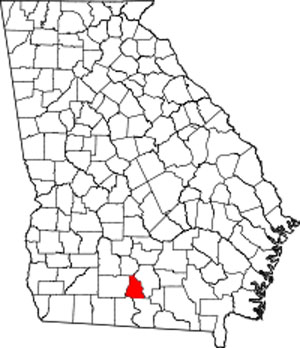
Cook County
With a grant from the Robert Wood Johnson Foundation, a local organization did a survey of county residents and interviewed community leaders about the effect of COVID on their lives, from July through December.
“What we’ve seen in Cook County would be very similar to what you’d see in other rural counties,’’ says Zoe Myers, executive director of the Cook County Family Connection.
Among the community’s leading concerns: mental health, food insecurity, financial problems and child care needs.
Dr. Jean Sumner, dean of Mercer University School of Medicine, when asked to comment about the Cook County research, says that the pandemic has exacerbated the challenges that rural Georgia residents face.
The problems in Cook County resemble those that Mercer physicians deal with in rural areas, Sumner says.
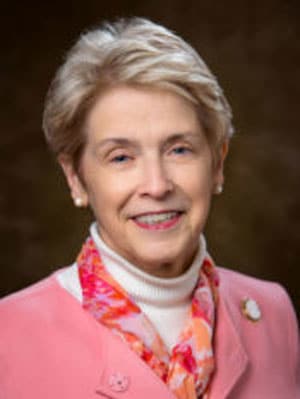
Mercer University School of Medicine Dean Jean R. Sumner, M.D., FACP
Photo courtesy of Georgia Health News
The report from the Family Connection, surveying 286 residents and community leaders, found that “some people were afraid of illness and death; some were anxious about their jobs and finances; some were lonely and isolated because of social distancing; some were frustrated and confused trying to maneuver daily life in new and complicated ways; and some were worried and uncertain about the future.’’
One senior who lives alone responded: “I have never felt so all alone in all of my life. I would prefer to go ahead and die than have to keep living isolated and alone, cut off from everyone in my small apartment.”
An immediate concern across the community was obtaining food. “The lines were incredible’’ at food distribution sites, says Myers.
The faith-based food pantries that typically provide emergency food chose to suspend operations to protect their volunteers. While the regional food bank, Second Harvest of South Georgia, continued to provide emergency food for those in need, many Cook residents did not have transportation to travel 30 to 40 miles for those regional food drop events, the report says.
“Hundreds of people lined up every week for Family Connection food drops; and many of them arrived up to two hours in advance to make sure they got into the line,’’ the report quotes a food volunteer as saying. “Some had lost their jobs, had their work hours cut, or were suddenly trying to feed children and grandchildren who normally ate at school or at youth programs that were now closed. People came to the food drops by every possible means . . . some walked long distances to stand in line.’’
Sumner says such obstacles are more difficult for rural residents.
“In Atlanta, you can have groceries delivered,’’ Sumner says. “In rural areas, it’s more of a complex issue.’’
Transportation is more difficult, without access to ride-sharing services, taxis or public transportation.
Cook County has seen only modest growth over the last 100 years, and more than one-third of its children are living in poverty. It’s ranked 107th among Georgia’s 159 counties on health outcomes by the 2020 County Health Rankings.
The higher COVID death rate in rural areas of Georgia reflects the higher rates of chronic diseases such as hypertension and diabetes in these communities, along with access to care problems, Sumner says. To those patients, COVID is a much more lethal burden, she says.
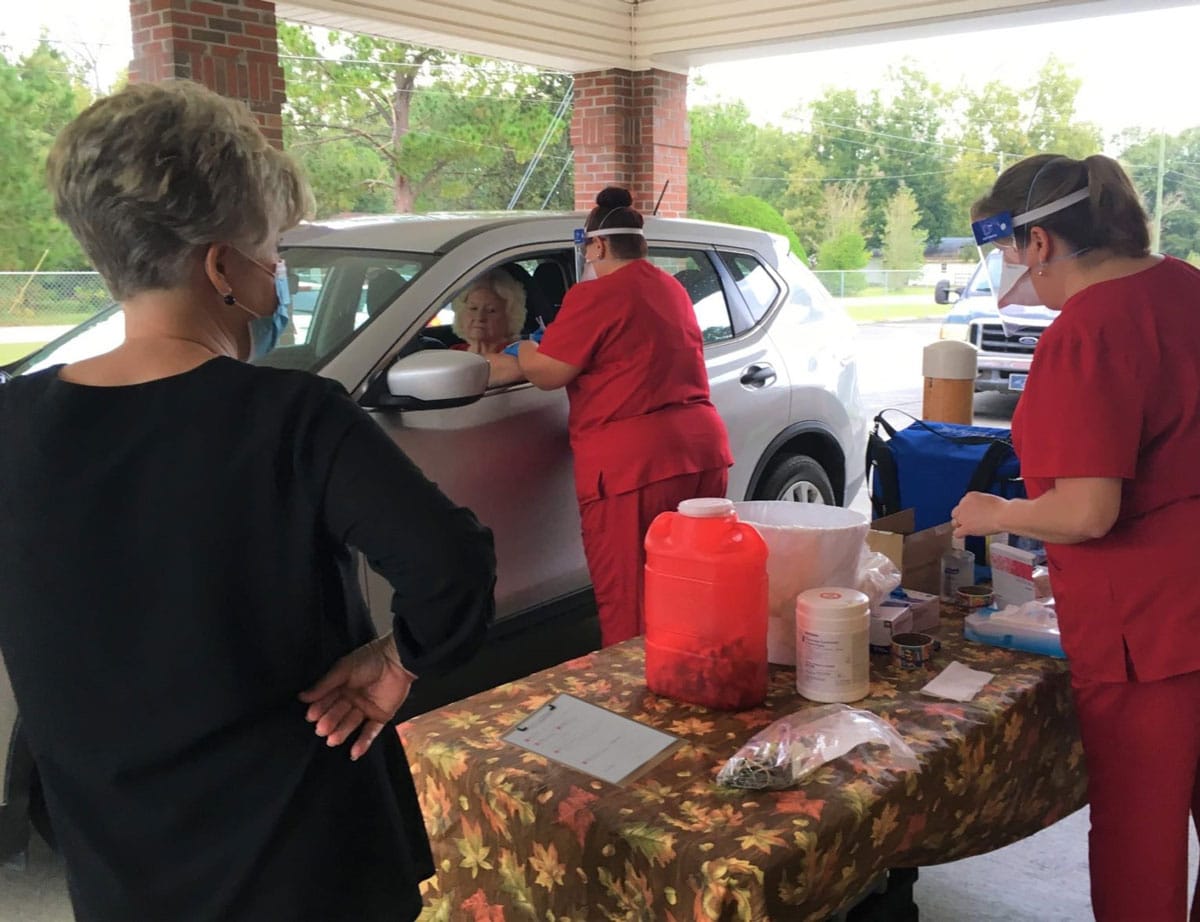
A vaccine drive-through in Cook County
“I applaud Cook County for being honest,’’ she adds. “These communities are resilient. We just need to guide them and empower them.’’
In other findings, the report said:
- 45 percent in the survey reported mental health problems.
- One in five said they had a medical procedure postponed or canceled because of the Covid-19 situation. Examples included mammograms, colonoscopies, pap smears, and diagnostic procedures.
- 30 percent said they had to care for their children or their grandchildren who were displaced from school or child care programs during the pandemic.
“The findings shine a light on some serious needs, inequities, and gaps in service,’’ Myers says. “And by identifying those challenges we can then begin strategizing new solutions to help restore and rebuild beyond the pandemic.’’
Read the story on georgiahealthnews.com.
Read a related story, “Cook County Family Connection Publishes Study on Pandemic Impacts.” The Collaborative was one of 17 organizations across the U.S. to receive research funding from Robert Wood Johnson Foundation and the Urban Institute in summer 2020 to conduct a six-month study on COVID-19 pandemic’s local impact.
